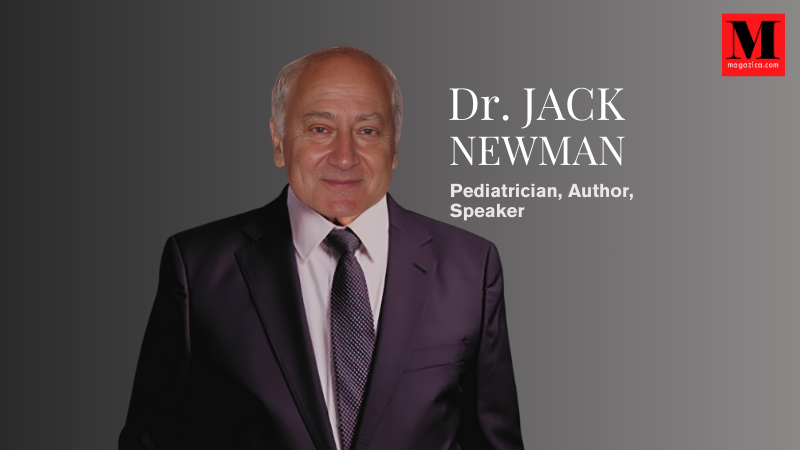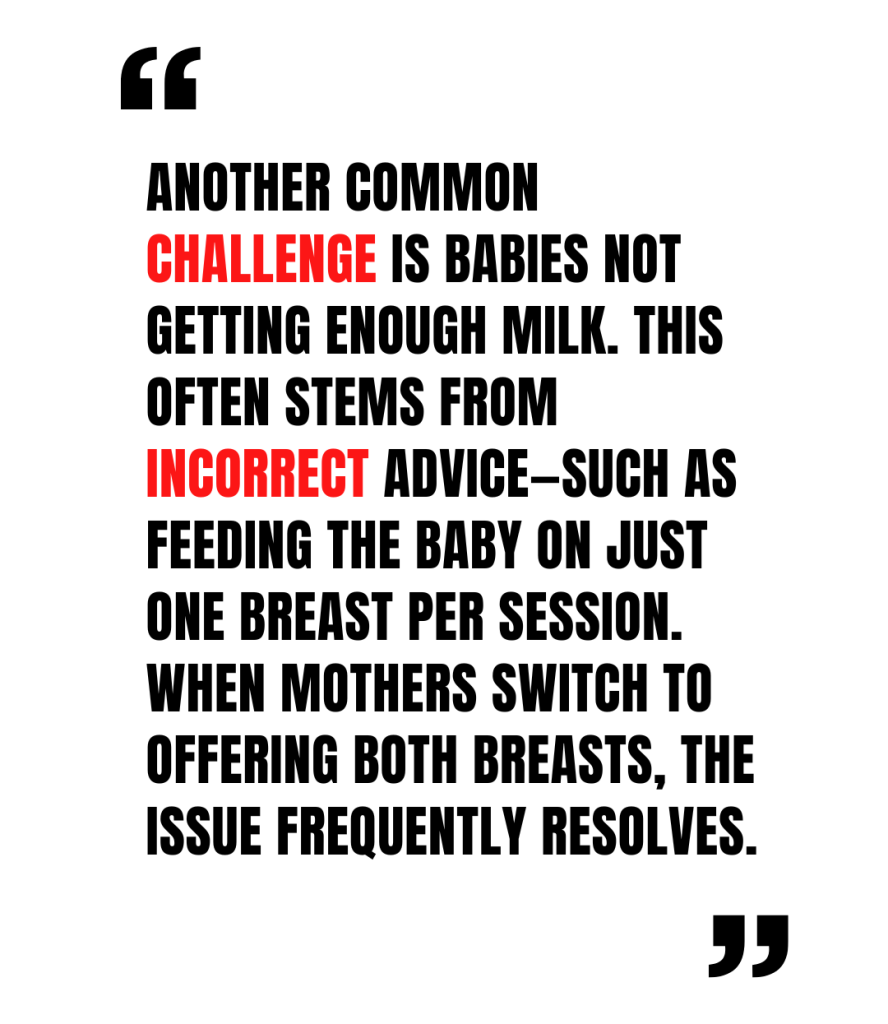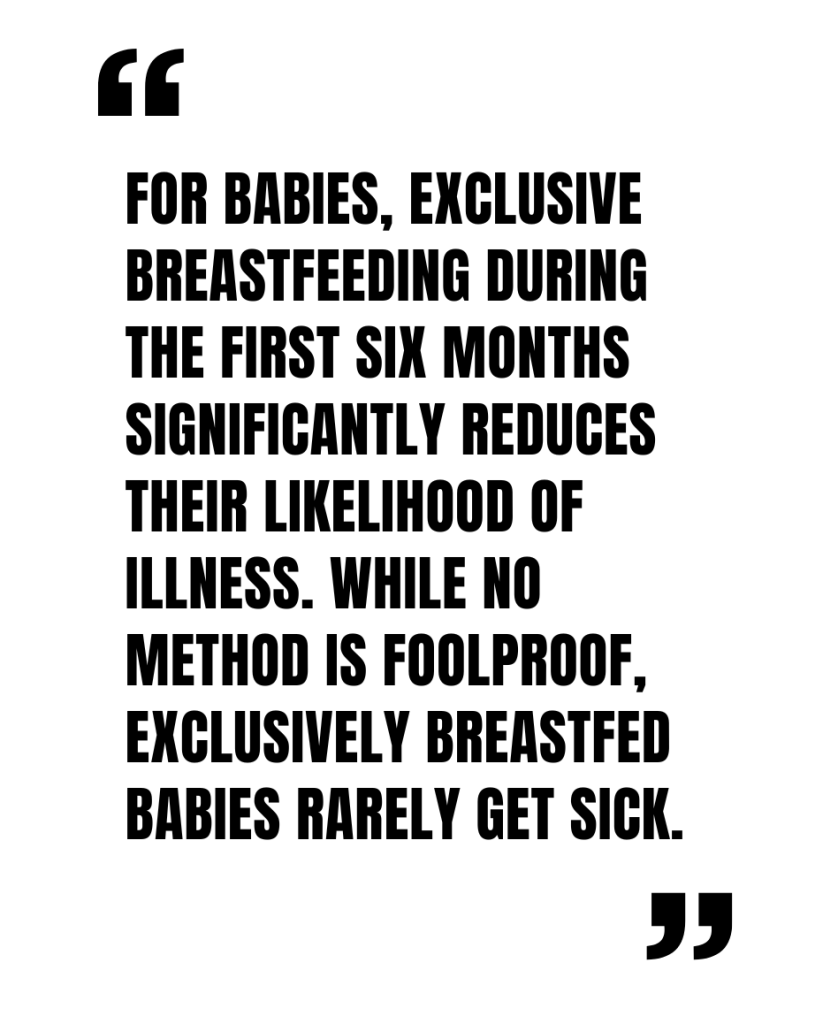Dr. Jack Newman’s Hands-On Approach to Maternal Health and The Breastfeeding Revolution: Benefits, Challenges, and Cultural Influences
- Home
- Dr. Jack Newman’s Hands-On Approach to Maternal Health and The Breastfeeding Revolution: Benefits, Challenges, and Cultural Influences

Dr. Jack Newman’s Hands-On Approach to Maternal Health and The Breastfeeding Revolution: Benefits, Challenges, and Cultural Influences
What is one of the secrets of nature’s most powerful gift for babies? Renowned paediatrician Dr. Jack Newman, a leading expert in breastfeeding, guides us on a transformative journey. Uncover the hidden truths behind common breastfeeding challenges, challenge outdated practices, and explore the profound impact of breastfeeding on both mothers and babies. Get ready to embrace the natural beauty of breastfeeding and discover practical strategies to make this experience fulfilling and successful.
Magazica: Today, we have the privilege of speaking with Dr. Jack Newman, a distinguished pediatrician at the International Breastfeeding Center. Known globally for his expertise in breastfeeding, Dr. Newman has dedicated his career to improving maternal and child health. He is an international speaker, presenting in both English and French, and provides hands-on breastfeeding help. We are honored to have him share his insights and practical strategies with us today. Dr. Newman, welcome to Magazica.
Dr. Jack Newman: Thank you very much. It’s a pleasure to be here.
Magazica: First of all, Dr. Newman, let’s start with your journey. Could you share the story, the motivation, and the factors behind your passion for breastfeeding and maternal health? What inspired you to dedicate your career to this field?
Dr. Jack Newman: Well, it was a bit unexpected, to be honest. I worked as a pediatrician at the Hospital for Sick Children in Toronto, often seeing mothers who brought their babies to the emergency department for dehydration, fever, or other common issues. Many of them also had difficulties with breastfeeding.
At the time, we had two pediatricians leave due to burnout, and the pediatrician in charge suggested I take some time away from emergency work to focus on a different area. Since I frequently encountered mothers with breastfeeding challenges, I decided to start a breastfeeding clinic.
It began slowly—our first year, we saw only four mothers and their babies. But over time, it became busier and busier, eventually reaching the point where I had to leave the emergency department to focus solely on breastfeeding support. Now, we see hundreds, possibly thousands, of families each year through in-person and virtual appointments.
While it’s hard to count precisely, since some mothers visit multiple times while others come just once, it’s clear that the demand has grown significantly. Other breastfeeding clinics have since opened in our city to handle the volume, which is fantastic. We’re committed to continuing this work for as long as possible.
Magazica: That’s an incredible journey. It’s fascinating how life guided you in this direction. Could you describe some of the common challenges mothers face when it comes to breastfeeding and how they can overcome these obstacles?
Dr. Jack Newman: Certainly. One of the most common issues we see is sore nipples. Many mothers believe this is normal, but I don’t agree. In our experience, even mothers who visit us on day three with sore nipples can find relief with the right help. When we address the baby’s latch, the pain often disappears, and the baby gets more milk as a result.
While a little discomfort in the first day or two might be normal, anything beyond that isn’t. The sooner mothers and babies receive help, the easier it is to resolve these problems.
Another common challenge is babies not getting enough milk. This often stems from incorrect advice—such as feeding the baby on just one breast per session. When mothers switch to offering both breasts, the issue frequently resolves. Unfortunately, this outdated practice has resurfaced, but with proper guidance, we can address it.
We also encounter babies who refuse to latch. If we see these cases early—ideally within the first week—it’s relatively easy to help. However, if a baby is six weeks old or older, it becomes much more difficult, which is why early intervention is crucial.
Magazica: That makes a lot of sense. Early intervention really seems to be key. In your experience, what are the most significant benefits of breastfeeding for both mothers and their babies?

Dr. Jack Newman: That’s an excellent question, and unfortunately, not all pediatricians fully understand the scope of breastfeeding’s benefits. For babies, exclusive breastfeeding during the first six months significantly reduces their likelihood of illness. While no method is foolproof, exclusively breastfed babies rarely get sick.
If mothers continue breastfeeding beyond six months, the protective effects persist. Beyond the health benefits, babies genuinely enjoy breastfeeding—it provides comfort and security. Many mothers tell me their babies don’t want to stop breastfeeding, and I always reassure them that one day, they will.
For mothers, breastfeeding offers numerous health advantages as well. It helps reduce the risk of certain cancers, aids postpartum recovery, and fosters a strong bond with their baby.
Magazica: That’s wonderful to hear. I can personally relate—my son breastfed for a long time, and he’s healthy and thriving, thanks to Mother Nature.
You often emphasize hands-on breastfeeding support in your work. Could you explain what this involves and how it can transform a mother’s breastfeeding experience?
Dr. Jack Newman: Of course. Hands-on support means showing mothers how to latch their babies correctly and, when necessary, physically helping them position the baby. Many mothers don’t receive adequate guidance on this, and verbal instructions alone are often insufficient.
When we demonstrate how to achieve a painless latch and ensure the baby is getting enough milk, it makes a world of difference. Seeing that it’s possible gives mothers confidence.
Unfortunately, some mothers come to us after experiencing significant challenges, and while we can improve their situation, not all will be able to breastfeed exclusively by then. For example, we see many mothers who’ve had breast reduction surgery, which can severely impact milk production—especially if the surgery involved incisions around the areola.
However, there are exceptions. I’ve worked with a few mothers who’ve successfully breastfed exclusively, including one who nursed twins, despite having had such surgery.
It’s vital to educate young women about the potential long-term consequences of breast surgery. Many undergo these procedures as teenagers without considering how it might affect future breastfeeding. Surgeons, unfortunately, often don’t address these implications either.
Magazica: The innovations you’ve implemented in your clinic sound revolutionary. Could you elaborate on the hands-on approach you mentioned?
Dr. Jack Newman: Certainly. Our clinic focuses on very practical, hands-on solutions. For instance, we teach mothers how to ensure their babies get milk effectively. Breastfeeding isn’t something you can measure precisely with tests; it requires observation and proper technique.
Unfortunately, challenges arise when mothers receive poor advice, often in hospitals. In Toronto, for example, it’s common for nurses to say there’s no milk in the first few days and offer formula in a bottle. That’s simply not true. Yes, milk supply is limited in the initial days, but under normal circumstances, it’s enough for the baby.
Magazica: That’s concerning.
Dr. Jack Newman: Indeed. There’s also the issue of visibility. Many young women have never seen anyone breastfeed, either in public or on television. It’s rare to see mothers breastfeeding in public spaces here in Toronto, which leads to a lack of knowledge and confidence about breastfeeding.
Magazica: Hopefully, discussions like these can raise awareness about the importance and natural beauty of breastfeeding. On that note, let’s shift to another critical aspect—nutrition. What dietary recommendations do you have for breastfeeding mothers to ensure both their health and the baby’s?
Dr. Jack Newman: Interestingly, mothers don’t need a special diet while breastfeeding. This is a common misconception. I’ve worked in many parts of the world where such myths persist. Mothers simply need to eat a reasonable number of varied foods to ensure they get enough calories. We don’t recommend dieting during breastfeeding, just as we don’t during pregnancy. With a balanced diet, the milk produced will be perfect for the baby.
Magazica: That’s enlightening—a myth busted for me! Moving on, what advice would you give to working mothers who might struggle to balance breastfeeding with their professional responsibilities?
Dr. Jack Newman: In Canada, we’re fortunate that women can take up to 18 months of maternity leave, albeit not with a high pay. Affluent women might take the full duration, but for others, especially those in lower-income jobs, even six months might be challenging.
For working mothers, the key is to breastfeed exclusively for as long as possible. If the baby is old enough, they can drink expressed breast milk from an open cup, although some may prefer bottles. Ideally, fathers or caregivers should avoid bottle-feeding at night to maintain the mother’s milk supply. Breastfeeding exclusively is always beneficial for the baby and mother.
Magazica: That’s great advice. By the way, we’re based in Scarborough, Toronto. Some workplaces here are quite accommodating, offering long breaks for breastfeeding mothers.
Dr. Jack Newman: That’s wonderful to hear. Our clinic is in Etobicoke, not far from Scarborough. Before the pandemic, I used to travel extensively, nationally and internationally, giving lectures and training sessions about breastfeeding.

Magazica: You’ve certainly made a global impact. Considering your point about exclusive breastfeeding, what role can partner or family members play in supporting breastfeeding mothers?
Dr. Jack Newman: Support from family is crucial. For instance, household tasks—laundry, cleaning, cooking—can be shared so the mother can focus on breastfeeding. Breastfeeding, especially during the night, can be exhausting. While some mothers can sleep while nursing, many cannot.
It’s a common misconception that the father feeding the baby at night helps the mother. In reality, most mothers are already awake and find it hard to go back to sleep. Instead, fathers and family members can assist by taking over other responsibilities, allowing the mother to rest whenever possible.
Time passes quickly; these early months are fleeting, though they may not feel like it at the time. It’s important for families to cherish and support these moments.
Magazica: And it’s really something that, if we make breastfeeding work the way it should, everyone will be happier in the long run. Maybe not always during the breastfeeding stage, but eventually. By the time the baby is six months old and eating food, they don’t need to feed as often. Breast milk can even be mixed with their food, and everything works out well.
Dr. Jack Newman: Exactly.
Magazica: That’s what my pediatrician said when my son was younger. She told us that after six months, it becomes less rigid. You can relax a bit about exclusively breastfeeding every time.
Before we discuss this topic further, you mentioned traveling across Europe, South America, Japan, China, and Southeast Asia. These regions have such diverse cultural norms and traditions. You’ve presented internationally on this topic, both in English and French. How does cultural understanding influence your approach to breastfeeding education and support?
Dr. Jack Newman: That’s a great question. There are definitely cultural issues that come up. For example, in many parts of Latin America, there’s this belief that mothers can’t eat certain foods, or that they shouldn’t breastfeed in public. Another common myth is that exclusively breastfeeding can make a baby sick with diarrhea because the baby’s bowel movements sometimes resemble diarrhea.
Often, even doctors who lack understanding about breastfeeding will advise mothers to supplement with formula, thinking it will improve the baby’s bowel movements. But that’s not true. And every time a baby is given a bottle, it can impact how well they breastfeed. A bottle isn’t the same as the breast. There’s this widespread myth that it doesn’t matter whether a baby drinks from a bottle or the breast, but it does. A baby who frequently uses a bottle may struggle to breastfeed properly.
Magazica: That must be challenging for mothers.
Dr. Jack Newman: It is. It puts a lot of responsibility on the mother. But the time does pass, and in hindsight, it feels quick. My youngest child is 40 now, and it’s incredible how fast those years went.
Magazica: Time really does fly. Looking at the bigger picture, how does breastfeeding contribute to long-term health outcomes for children? And in some cases, even for communities?
Dr. Jack Newman: Breastfeeding has a profound impact. For instance, exclusive breastfeeding during the first six months has been shown to lower the risk of diabetes in children. Diabetes, especially in young children, is tough because they often need daily insulin injections. Although there are newer solutions like automatic insulin pumps, those are expensive and not accessible to everyone.
Asthma is another example. Babies who are exclusively breastfed for six months are less likely to develop asthma.It’s not a guarantee, of course, but it’s less common in breastfed children.
Additionally, breastfeeding supports intellectual development. Studies suggest that children who are breastfed for six months or longer often perform better in school compared to their non-breastfed peers.
Magazica: That’s fascinating. Do you think that’s entirely due to breastfeeding, or could other factors play a role?
Dr. Jack Newman: It’s a combination. Some argue that women who breastfeed might be more educated or have certain advantages, but I don’t believe that’s the full story. The link between breastfeeding and better school performance has been observed even when other variables are considered. It’s challenging to prove definitively because many factors—like birth order or socioeconomic status—play a role. But the evidence strongly suggests that breastfeeding has a positive effect.
Magazica: Finally, for mothers who might be struggling or feeling discouraged, what words of encouragement or advice would you offer to help them stay motivated and confident in their breastfeeding journey?
Dr. Jack Newman: If a mother is feeling overwhelmed, I encourage her to seek help. Visiting a clinic like ours can make a big difference. We also offer virtual consultations, but being there in person with the mother and baby allows us to provide hands-on support.
Sometimes, the problems are surprisingly easy to fix. Of course, not always—but very often. We help mothers with latching techniques, preventing sore nipples, and increasing milk flow. When they leave our clinic, they usually feel much more confident. We follow up with them, and in most cases, they’ve made incredible progress.
Magazica: That’s fantastic advice. Thank you, Dr. Newman, for sharing your insights and wisdom. I’m sure this conversation will encourage many women to feel more confident in their breastfeeding journey while raising awareness about its benefits. Thank you for joining me today.
Dr. Jack Newman: It’s been a pleasure. Thank you for having me.
Magazica: Thank you, Dr. Newman.
- Share
Dr. Jack Newman
Dr. Jack Newman is a renowned paediatrician based in Toronto, Canada, and a leading expert in breastfeeding. He is a strong advocate for mothers' rights to breastfeed and believes in providing practical support to help them overcome challenges. Dr. Newman has authored numerous articles on the topic, addressing issues like sore nipples, milk supply, and the impact of breast surgery on breastfeeding. His insights challenge conventional wisdom and highlight the importance of hands-on guidance for successful breastfeeding journeys.
